
Choosing the right boiler for your home is one of the most important heating decisions you’ll make. It affects how comfortable your home feels, how much you spend on energy, and how efficiently your heating system runs.
According to government data, about 86% of UK households use a gas-fired heating system to warm their homes. That means most homes already rely on a gas boiler, making it even more important to choose the right type and have it fitted properly.
If you’re replacing an existing boiler or installing one for the first time, there’s more to consider than price alone. The right choice can cut your energy bills, save space, and make daily life easier. This guide explains the main boiler types, how to choose the best option for your property, and what to think about before booking an installation.
What Are the Different Types of Boilers?
There are several types of boiler available in the UK. Each suits different homes depending on space, hot water demand, and the existing heating setup.
Combi Boiler
A combi boiler (short for combination boiler) is the most common type in the UK. It provides both heating and hot water directly from the mains, without the need for tanks or cylinders. This makes it ideal for smaller homes or flats where space is limited.
When you turn on a hot tap or shower, the combi boiler heats water instantly. Because water isn’t stored, it’s efficient and economical, you only heat what you use. However, if several taps run at once, pressure may drop slightly. For larger households, a system boiler may be more suitable.
System Boiler
A system boiler is designed for medium to large homes, especially those with more than one bathroom. It uses a separate hot water cylinder to store heated water but doesn’t need a cold water tank.
System boilers provide strong water pressure to multiple outlets at once, making them reliable for families. They’re efficient and easy to install but do require space for the cylinder. Once the stored water runs out, it needs time to reheat.
Regular (Conventional) Boiler
A regular boiler (also known as a traditional or open-vent boiler) uses both a hot water cylinder and a cold water tank, usually in the loft. It’s a common setup in older homes with existing pipework or low mains pressure.
These boilers can supply hot water to several taps at once, making them suitable for larger properties. However, they take up more room and can run out of stored water if demand is high.
Electric Boiler
An electric boiler works like a gas boiler but uses electricity to heat water. They are compact, quiet, and don’t require a flue, so they can be installed almost anywhere.
Electric boilers are 100% efficient at the point of use, but electricity costs more per unit than gas, making them more expensive to run. They’re best for smaller properties or homes not connected to the gas network, and they work well alongside renewable energy sources such as solar panels.
Heat Pump Boiler
A heat pump boiler uses heat from the air or ground to warm your home. Air source heat pumps are the most common, as they’re easier and cheaper to fit than ground source systems.
They can cut heating costs and carbon emissions but perform best in well-insulated homes. Installation is more expensive than a gas or electric boiler, though government grants can help cover some costs.
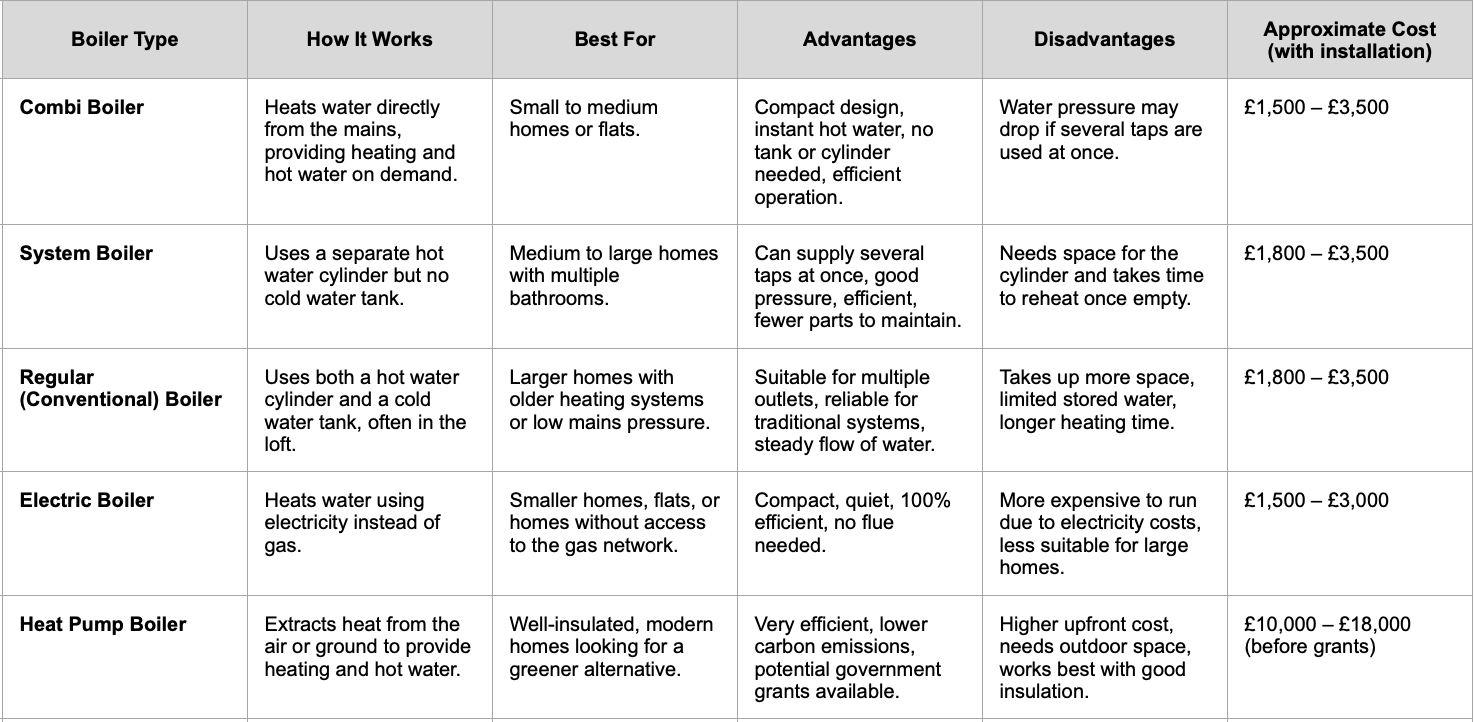
How to Choose the Right Boiler for Your Home
When selecting a new boiler, start with your home’s size and layout. Small properties and flats usually suit a combi boiler, as it provides instant hot water and takes up little space.
For medium to large homes, especially those with multiple bathrooms, a system boiler offers reliable performance. It supplies several taps at once without a drop in pressure.
If your home already has an older heating setup with tanks and cylinders, a regular boiler may be the most practical choice. These systems work well with existing pipework and provide a steady flow of hot water.
Fuel type is another important factor. Most UK homes use a gas boiler, which is efficient and affordable. If you’re off the gas grid, an electric boiler, LPG, or oil system might be better. Speak to a qualified heating engineer to find out what’s available in your area.
Modern condensing boilers are highly efficient, reusing heat that would otherwise escape through the flue. Most achieve over 90% efficiency, helping you save money and reduce your carbon footprint.
Finally, think about space and convenience. If you want something compact and low maintenance, go for a combi boiler. If you have a larger home and space for a cylinder, a system boiler offers greater capacity for busy households.
Boiler Costs and Installation
The cost of a new boiler installation varies depending on the type, size, and complexity of the work. On average, you can expect to pay between £1,500 and £3,500, including fitting.
Always use a Gas Safe registered engineer for any gas boiler installation. This ensures the work meets safety standards and keeps your warranty valid. A professional installer can also assess your heating and hot water needs to recommend the most suitable model.
Replacing an old boiler can seem expensive, but it’s a long-term investment. A modern energy-efficient system will use less fuel, saving you money each month and reducing your carbon emissions. Regular servicing will help your boiler last longer and perform more efficiently.
For trusted, local advice, contact SAS Gas Services. Their experienced team can recommend the best boiler for your home, complete the installation, and make sure everything runs smoothly.
Saving Energy and Improving Efficiency
Fitting a new boiler is one of the easiest ways to improve your home’s efficiency, but you can save even more by reducing heat loss. Around a quarter of a home’s warmth can escape through the roof, so adding loft insulation is one of the most effective upgrades you can make.
Cavity wall insulation is another worthwhile step, filling the gap between walls to keep heat in. If your home has solid walls, you can still insulate them internally or externally, although it can be more costly.
Simple draught-proofing can make a big difference too. Sealing gaps around windows, doors, and floors prevents warm air escaping, while letterbox brushes and chimney balloons help reduce heat loss.
Combining a modern, efficient boiler with good insulation and smart heating controls gives you better temperature control and helps lower your energy bills all year round.
FAQs
Find answers to your most pressing questions about plumbing and heating services.
The right size depends on your property, the number of radiators, and how much hot water you use. A heating engineer can calculate this for you.
Most boilers last between 10 and 15 years if they’re serviced annually.
A combi boiler or a modern condensing gas boiler is usually the most efficient option for most homes. Heat pumps can be even more efficient if your home is well insulated.
Depending on the type and brand, expect to pay between £1,500 and £3,500 including installation.
If your boiler is over 10 years old, breaks down often, or isn’t heating efficiently, upgrading to a new model will save energy and money.
Still have questions?
We're here to help you with any inquiries.
Looking for Help
with your Plumbing?
Contact us now
Explore Our Other Insights
Stay updated with our plumbing and heating tips.

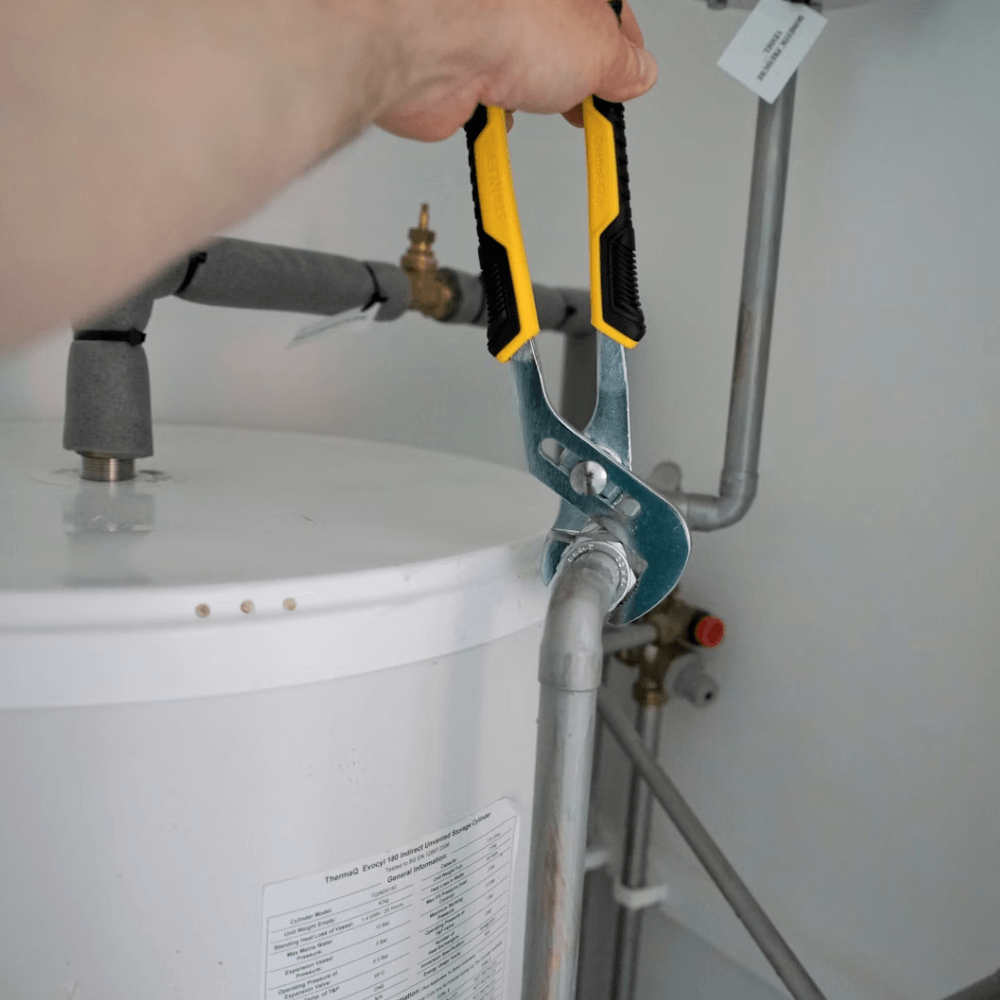
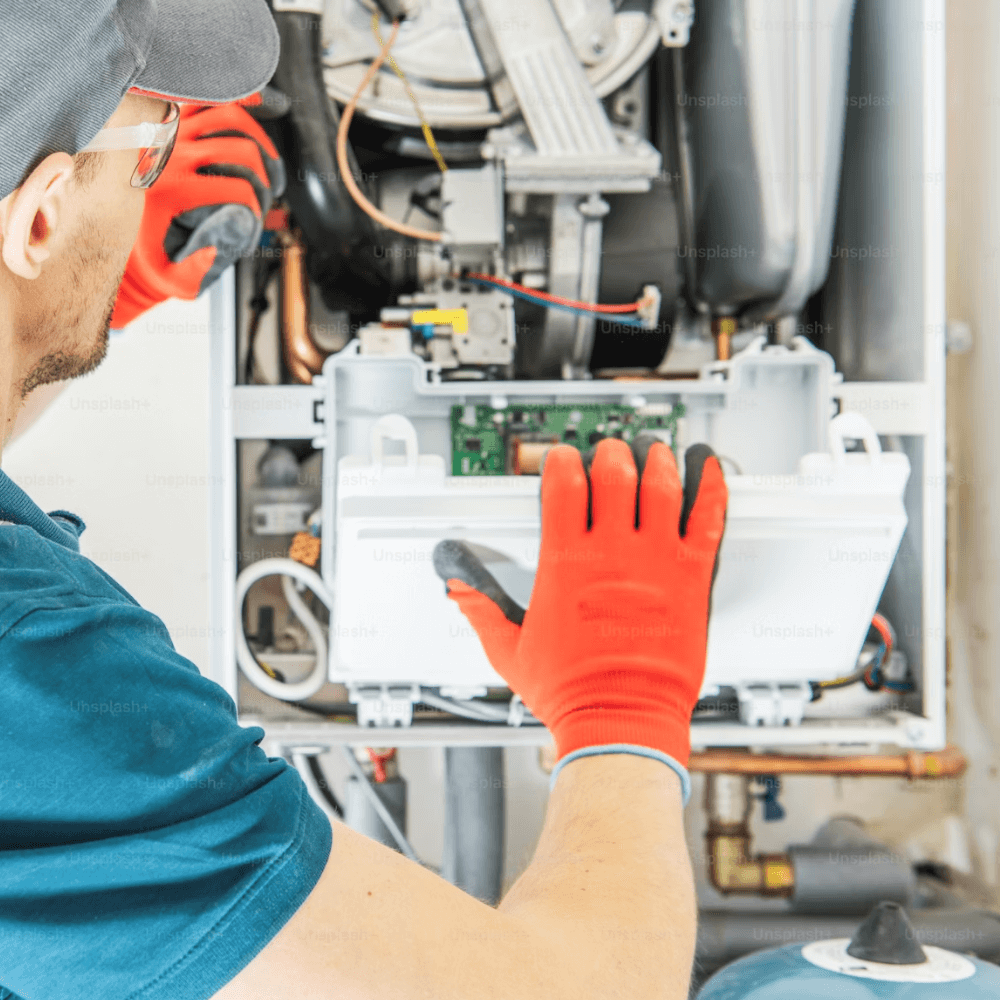
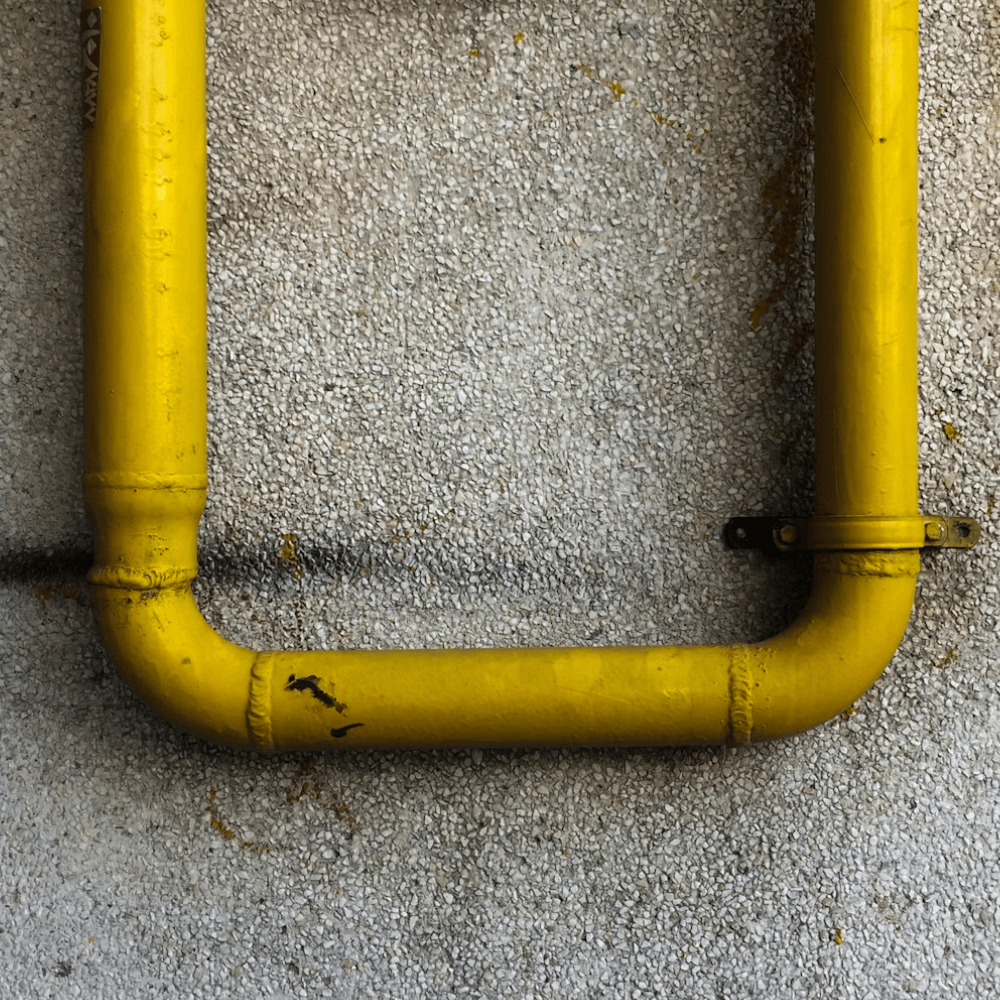
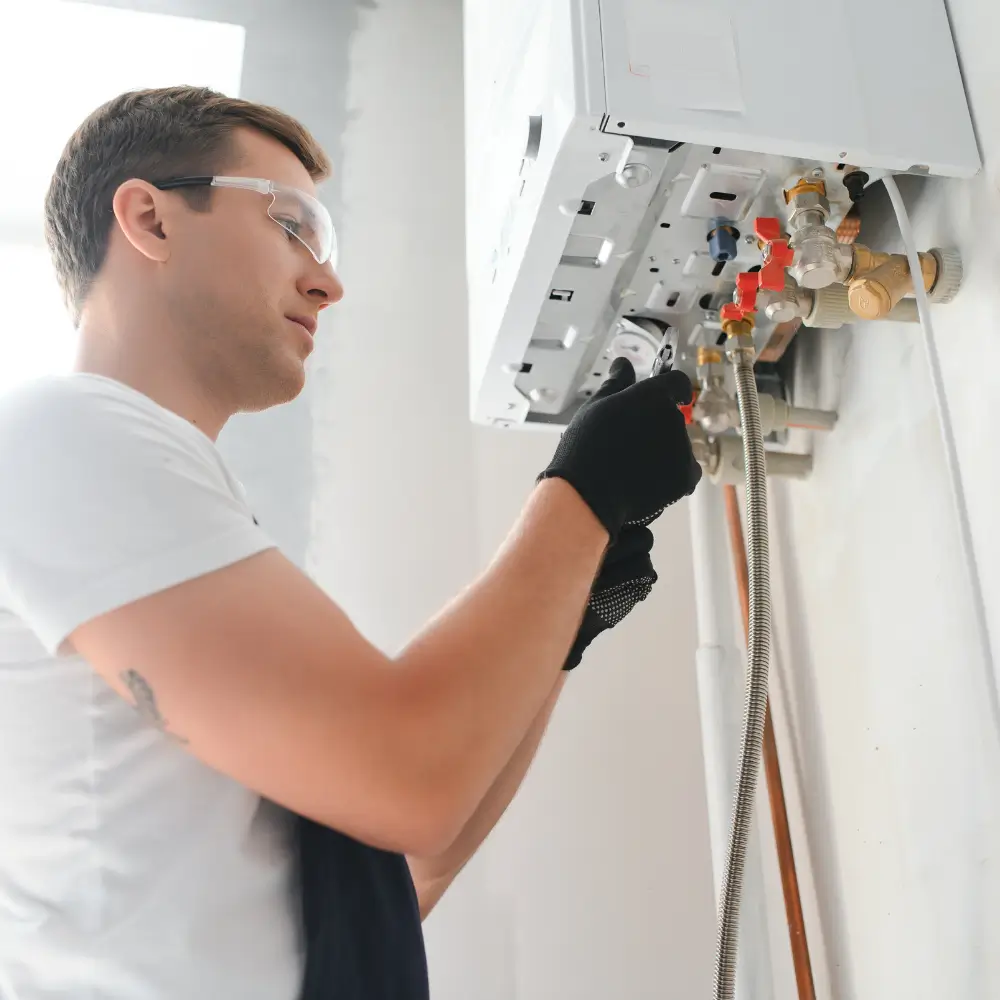
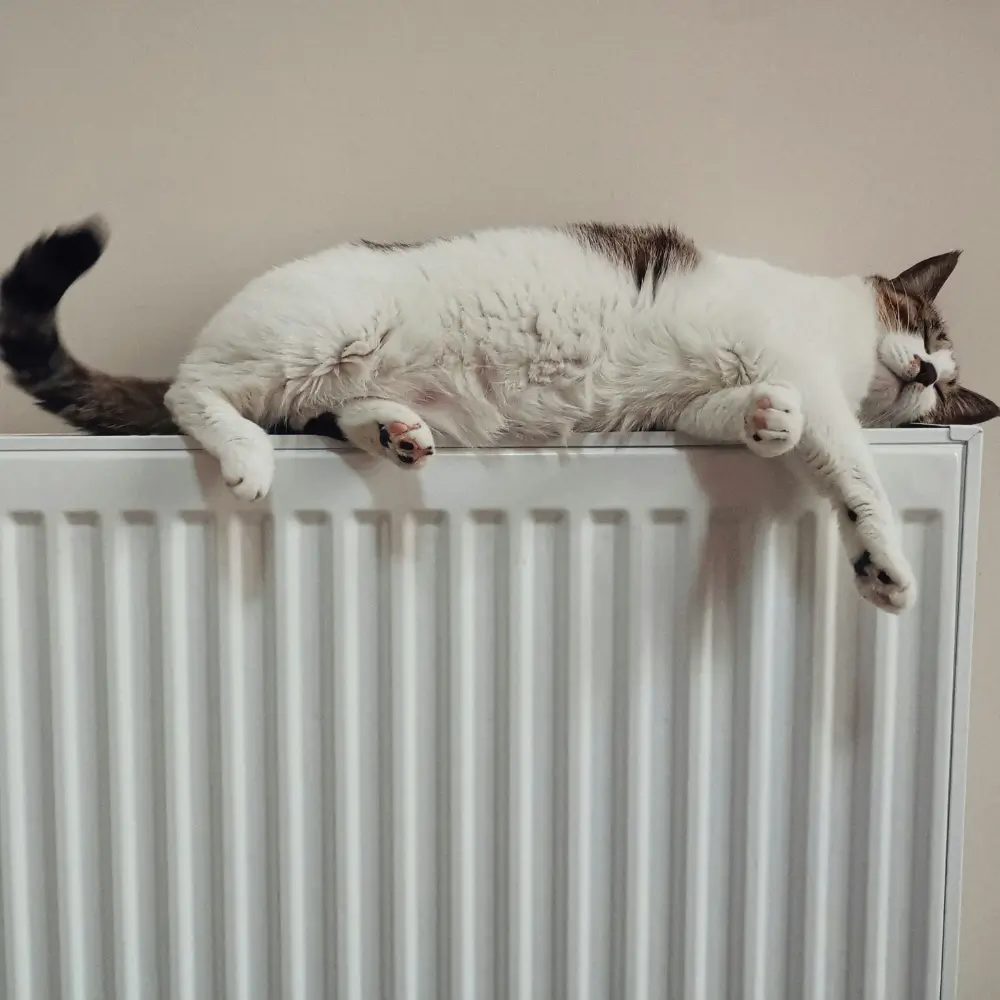
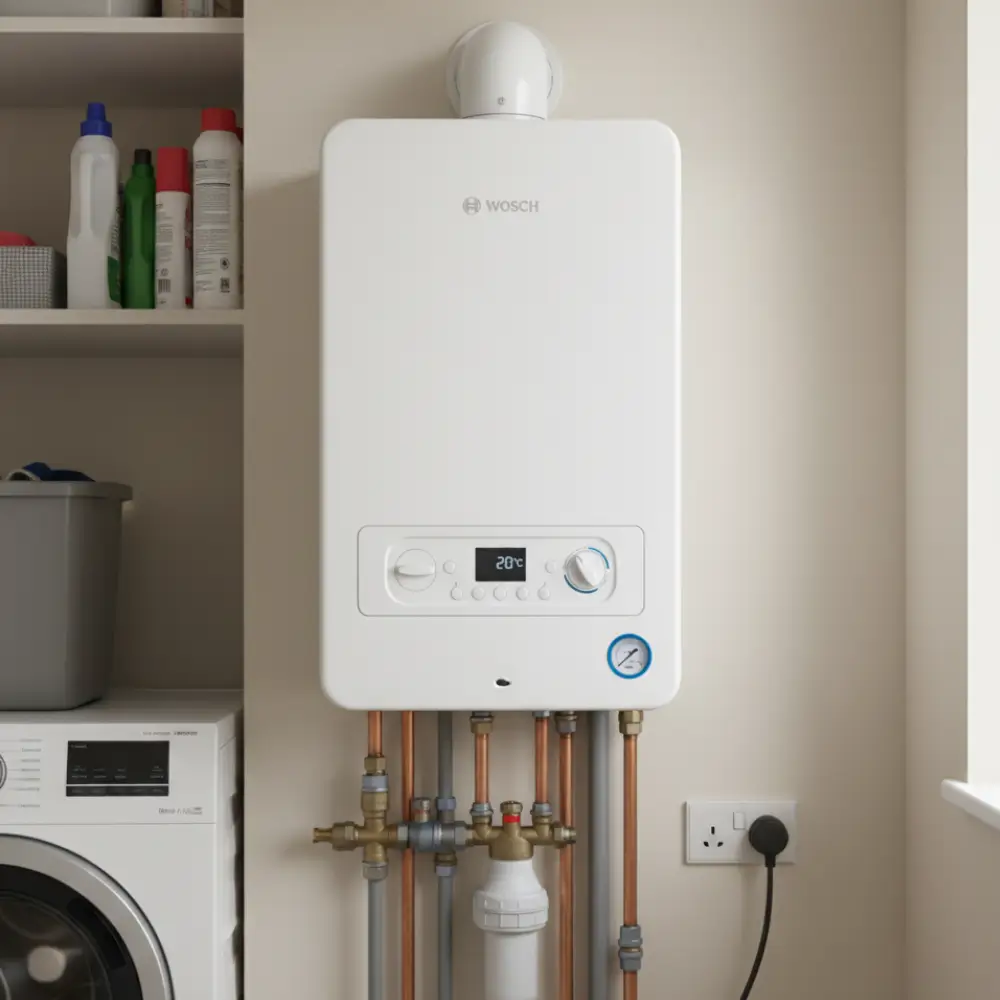
.webp)
.webp)
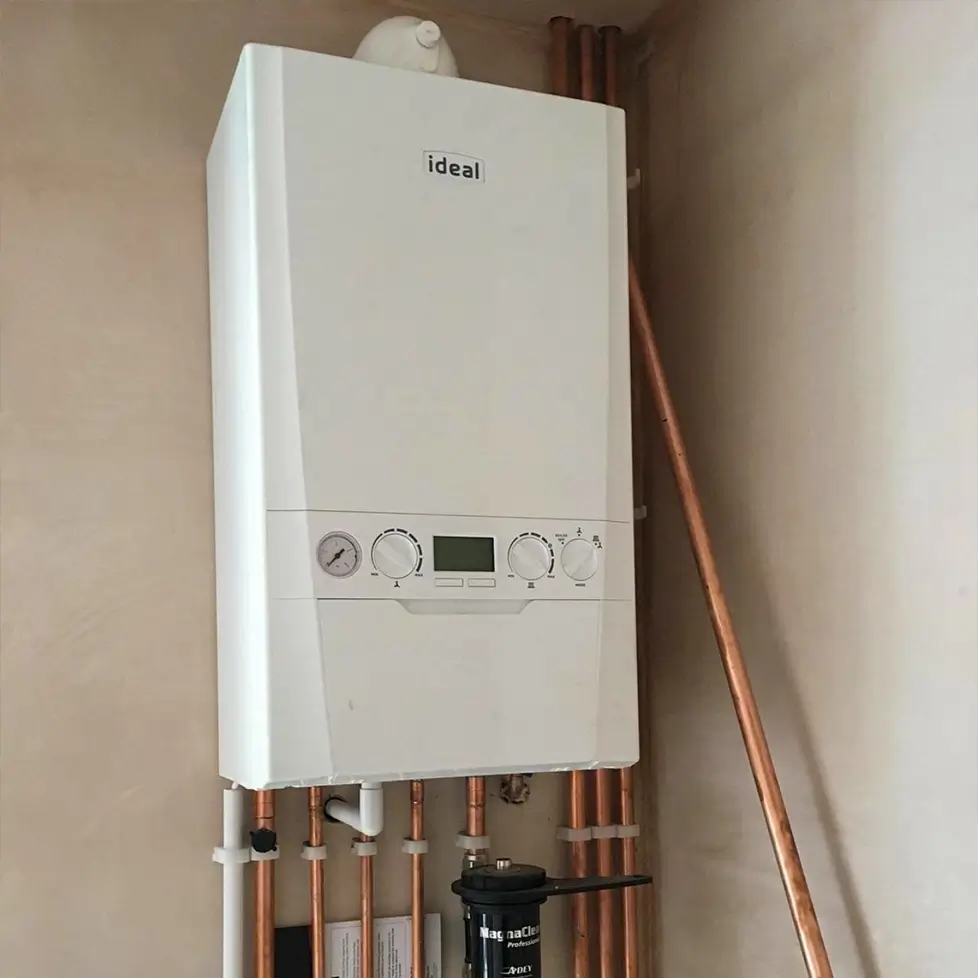
.webp)

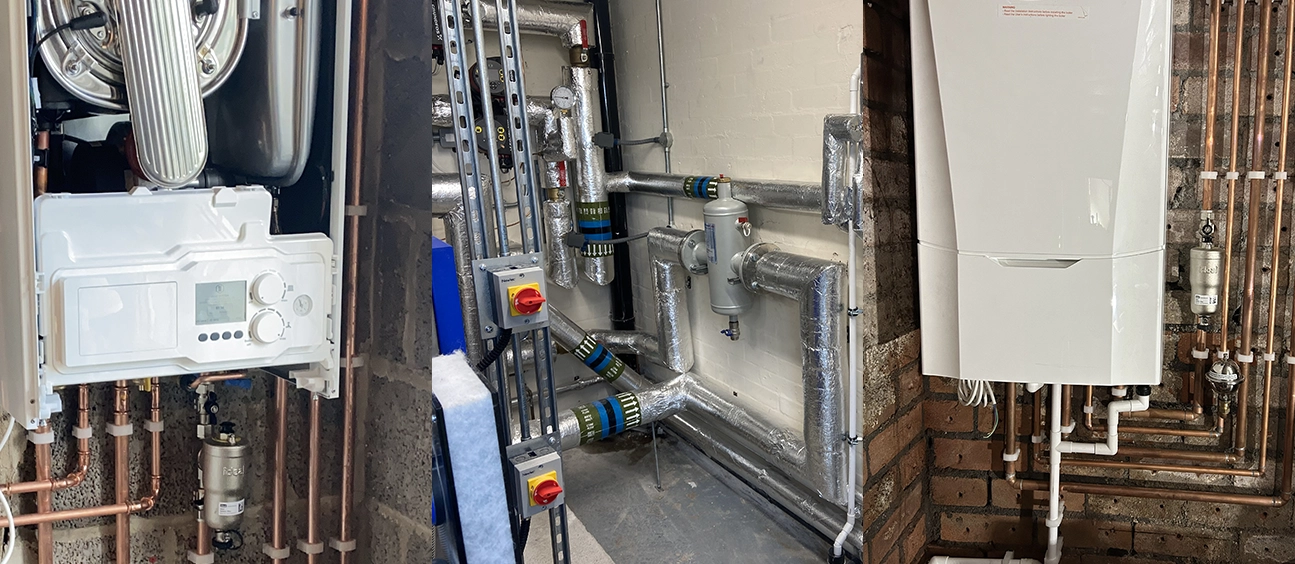
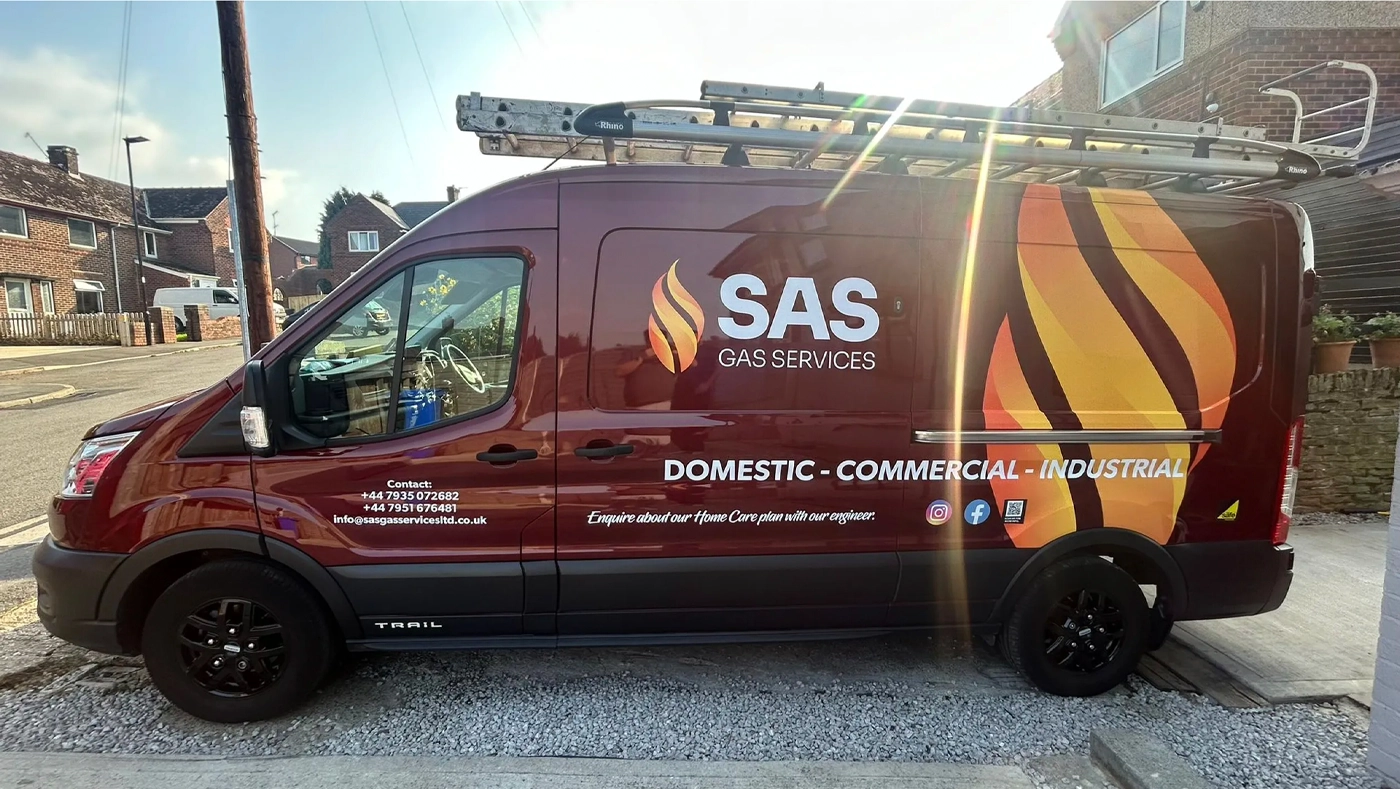
.webp)

